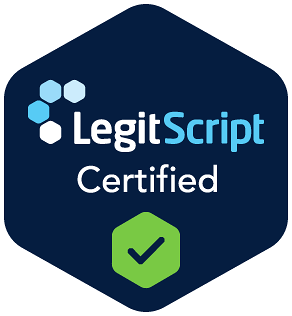As we navigate the intricate landscape of substance abuse treatment, the quest for the most effective Intensive Outpatient Programs (IOP) becomes essential. These programs are influential, offering a tailored treatment plan that balances therapy with the patient’s day-to-day life. However, the efficacy of these programs hinges on their quality, success rates, and aftercare provisions, among other factors. Consequently, the endeavor to identify the best IOP program warrants a thoughtful discussion, thereby equipping stakeholders with the necessary insights to make informed decisions.
Understanding IOP Programs
If you or someone you know is grappling with substance abuse, understanding the nature and benefits of Intensive Outpatient Programs (IOP) can be an essential step towards recovery. Defining IOP, these are structured treatment programs designed to provide regular support to individuals battling substance abuse while allowing them to continue with their daily responsibilities. IOP programs typically involve group therapy sessions, individual counseling, and educational seminars on substance abuse disorders. They are characterized by their flexibility, making them an ideal choice for individuals who may not require or cannot commit to a full-time residential treatment program, but still need professional help to overcome their addiction.
The program benefits are multifaceted. They extend beyond immediate medical treatment, offering a holistic approach to recovery. IOPs provide critical tools and coping mechanisms to help individuals deal with triggers and stress, reducing the likelihood of relapse. They also focus on rebuilding relationships and improving personal life skills, fostering an environment conducive to long-term recovery. Understanding IOP programs is the first step in making an informed decision about the path to recovery. Their structure and benefits make them an excellent choice for many struggling with substance abuse.
Evaluating Quality IOP Programs
Selecting an appropriate Intensive Outpatient Program is vital for effective recovery. Determining the effectiveness of these programs is an essential step in this process. One should examine the success rates of the potential program, the relapse rates, and how these figures compare to other programs or the national average. Another key aspect involves evaluating credentials of the program. A quality IOP will be licensed by the state and accredited by recognized bodies such as the Joint Commission or the Commission on Accreditation of Rehabilitation Facilities (CARF).
Assessing an IOP also encompasses looking at the program’s approach to treatment. Effective programs offer a thorough and individualized treatment plan that includes medical, psychological, and social services. Additionally, it is beneficial if the program provides family involvement in the recovery process and has a strong aftercare program to support the patient once they leave the treatment facility.
Choosing the Ideal IOP Program
Having evaluated potential IOP programs for their quality and effectiveness, the next step involves making a choice tailored to your unique needs. It’s essential to remember that each person’s struggle with substance abuse is unique, and consequently, their treatment should be individualized. When choosing the ideal IOP program, consider your personal goals. Are you aiming for complete sobriety or merely seeking to reduce the harmful impacts of substance use on your life?
Understanding your objectives can help you select a program that aligns with your aspirations. Equally significant is program flexibility. The most effective IOPs are those that fit seamlessly into your life, allowing you to maintain your job, family responsibilities, and other personal commitments while undergoing treatment. A rigidly structured program may not serve your best interests.

Final Thoughts
Selecting the most suitable IOP program for substance abuse requires careful evaluation of the individual’s needs and treatment objectives. Ideal programs offer personalized care, flexibility, and holistic approaches to foster lasting recovery. By evaluating program credentials, success rates, and aftercare options, one can identify a program that aligns with their recovery goals. Ensuring these elements are present can greatly contribute to a successful journey toward lasting sobriety.
If you or someone you care about is grappling with substance abuse, remember that support is within reach. At Bluecrest, we provide an intensive outpatient program customized to suit individual needs, fostering recovery and optimism. Our team of devoted professionals is dedicated to offering the guidance, support, and tools needed to navigate the path to sobriety.
Frequently Asked Questions
What Kind of Aftercare Is Available Post Completion of an IOP Program?
Post completion of an IOP (Intensive Outpatient Program), various aftercare resources are typically made available to guarantee sustained recovery. These include continued therapy sessions, education on coping mechanisms, and access to support groups. These resources provide a safety net, aiding in the shift back to everyday life while minimizing the risk of relapse. Regular check-ins with healthcare providers are also an integral part of aftercare to monitor progress and address any emerging challenges.
How Do IOP Programs Accommodate Individuals With Co-Occurring Mental Health Disorders?
Intensive Outpatient Programs (IOPs) accommodate individuals with co-occurring mental health disorders through an approach known as dual diagnosis. This means that they simultaneously treat substance abuse and mental health issues. Integrated treatment is key in these instances as it addresses all aspects of a person’s health. This holistic approach improves the chances of recovery by tackling the complexity of co-occurring disorders, offering thorough care that caters to the unique needs of each individual.
What Are the Typical Costs of IOP Programs and Are There Financial Assistance Options?
The cost of Intensive Outpatient Programs (IOP) for substance abuse varies widely, typically ranging from $3,000 to $10,000. Many programs accept insurance coverage, which can greatly reduce out-of-pocket expenses. Additionally, some facilities offer payment plans or sliding scale fees based on income. Financial assistance or scholarships may also be available. It’s essential to discuss these options with the facility during the admissions process.
Can I Maintain My Normal Daily Routine While Enrolled in an IOP Program?
Yes, Intensive Outpatient Programs (IOPs) are typically designed to allow individuals to maintain their daily routine. IOPs offer a structured therapy setting while balancing commitments to work, school, or family. Sessions are usually scheduled during non-working hours. This flexibility makes it possible to receive treatment without significant disruption to your daily life, making it a viable option for those who can’t afford to neglect personal, professional, or academic responsibilities.
How Does an IOP Program Handle Relapses During the Course of Treatment?
In an Intensive Outpatient Program (IOP), relapses during treatment are addressed with a thorough approach. Through relapse prevention education, the program emphasizes understanding triggers and developing coping strategies. If a relapse occurs, it is seen as a part of the recovery journey, not a failure. The focus shifts to learning from the experience and strengthening the individual’s commitment to sobriety, while adjusting the treatment plan as needed.



